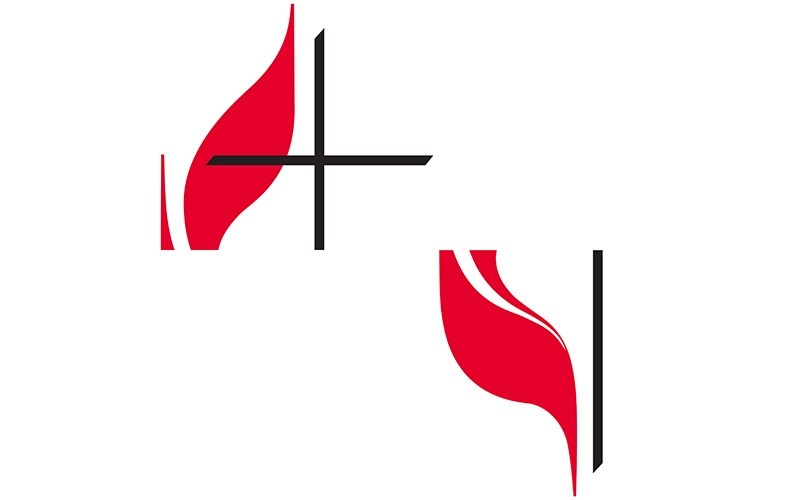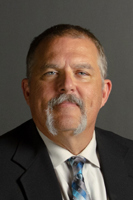

The irreparable schism in the United Methodist Church that is about to end in separation can be laid squarely at the feet of one group of people. It would be easy to blame the homosexuals for causing all this trouble. They have demanded that every United Methodist accommodate their sexual proclivities and fumed and whined when we haven’t. But in truth, they are no more to blame for the coming split in United Methodism than an unruly narcissistic child is responsible for her parents’ divorce proceedings.
It would be easy to blame the theological liberals and progressives in the denomination for the split. They think they are today’s civil rights warriors standing in the gap for the oppressed. It is ridiculous that they equate sexual behavior with skin color. But even so, they are no more to blame for the denominational split than the self-inflated arrogant hippies of the ’70s were to blame for the political mismanagement of the Vietnam War.
And it would be easy to blame all the United Methodist clergy (and members) who intentionally steered clear of the controversy for decades just hoping that all the fuss about sexuality would go away. But they are like the patient at the doctor’s office who has been told that he has a serious condition that could even be terminal and that immediate surgery or treatment is the recommended course of action but he doesn’t want to go through the aggravation and believes it might just miraculously go away. A lack of wisdom in dealing with a dire situation contributes to the end result but doesn’t cause it.
To be sure, the homosexuals, the progressives, and the apathetic churchgoers all bear a measure of blame and responsibility. Obviously. But the lion’s share of blame for the impending denominational split in the United Methodist Church can be attributed to one group. The bishops.
The United Methodist episcopacy has failed both the denomination they were called to lead, as well as the lost who are in dire need of redemption in the world. Let me be completely transparent here. I am not a mildly interested third party watching this disaster. I was licensed as a United Methodist pastor in 1987 and ordained an elder in full-connection in 1995. I received my Master of Divinity (1993) and my Doctor of Ministry (2016) at Asbury Theological Seminary (an independent but faithfully Wesleyan seminary). I have read John Wesley’s sermons, journals, and letters. Today’s episcopacy isn’t matching up with the history of the Wesleyan movement.
The UM episcopacy (as well as the leadership of other denominations that have either already split or are going to) has essentially forsaken the doctrine of holiness by disavowing (in practice) the proclamation of hell, repentance, and original sin.
Hell
For decades, I have heard the UM episcopacy talk about the importance of making disciples. That’s great. Pointing to the Great Commission as justification for doing so is fine. But why? The command to make disciples isn’t the reason for doing so. Why does Jesus command His followers to make disciples? Even a cursory reading of the Gospels reveals that Jesus believed/s that the reality of hell is a compelling reason to make disciples (Luke 16:19-31; Matthew 13:37-43; 25: 41-46; Mark 9:43-48 just to point out a few).
When the UM episcopacy exhorts the people to be faithful to make disciples but pretty much abandons any mention of hell, what kind of disciples are being made? There is a consequence for a lifelong failure to obey God. When you take hell out of the discipleship equation you have severely undermined the doctrine of salvation. What does “redeemed” even mean without hell? In “Sinners in the Hands of an Angry God” Jonathan Edwards said, “Almost every natural man that hears of hell, flatters himself that he shall escape it.” At least they used to hear about it. Our bishops pretend it doesn’t exist.
Repentance
When Christian leaders relegate the doctrine of hell to primitive superstition they seriously undermine repentance. When hell is no longer on the table, repentance is strictly anthropological. It’s what we do to survive each other’s angst; not what we owe God for offending his holiness. Do you remember what David said when confronted by the prophet Nathan about his secret sin with Bathsheba and against her husband? “I have sinned against the Lord” (2 Samuel 12:13). Repentance that does not go through God first is not repentance. It is an apology that can be sincere or not. Most Methodists (and Christians of other denominations) know that the Greek word for “repent” and its usage in the New Testament implies not only a sorrow for what was done but a complete about-face behaviorally. Exhorting Methodists to repent of institutionalized racism, homophobia, and xenophobia while failing to call upon those who practice sin (such as homosexuality) to repent is nothing but a social justice lecture.
Original Sin
When hell is ignored and repentance becomes nothing but a gesture to enable good feelings moving forward then you know the doctrine of Original Sin has become anathema. In his sermon “Repentance of Believers” John Wesley said, “till we are sensible of our disease, it admits no cure.” Dietrich Bonhoeffer said essentially the same thing about 200 years later when on the first page of the first chapter of The Cost of Discipleship he wrote: “Cheap grace means the justification of sin without the justification of the sinner.” Then at the end of that classic, he wrote: “If the Church refuses to face the stern reality of sin, it will gain no credence when it talks of forgiveness.” You cannot make legitimate Christian disciples without delving deeply into mankind’s depraved and fallen nature. But that is exactly what the UM episcopacy has been advocating for decades now. Telling people that God made them, loves them, and accepts them as they are without any mention of Original Sin and its devastating consequences is unfaithful to Scripture and unheard of (until now) to authentic Wesleyanism.
Holiness
When you mute the doctrine of Original Sin, repentance becomes more of a cultural confession of ignorance than a turn back toward God and hell becomes more of a symbolic overture than a legitimate reality to fear. The holiness of God is the real casualty. When United Methodist bishops push for the accommodation of sexual sin for which there is nothing but clarity in Scripture concerning its identification as a sin, they are portraying to both sinner and saint a God who cuts corners. Read the story of Uzzah in the Old Testament to see if God cuts corners (2 Samuel 6:5-9) or Ananias and Sapphira in the New Testament (Acts 5:1-11).
John Wesley once described Methodists as “downright Bible-Christians; taking the Bible, as interpreted by the primitive Church and our own, for their whole and sole rule.” Somewhere along the line, UM bishops decided that assertion was no longer applicable.
They decided the love of God no longer needed to be placed within the context of the holiness of God. Sin became a state of mind rather than being. Consequently, the message from UM leadership is that God wants everyone to be happy; not holy.
Do you remember Moses’ brother Aaron and the golden calf? While Moses was on Mt. Sinai with God the people demanded that Aaron “make us gods who shall go before us” (Exodus 32:1). There was no pushback from Aaron whatsoever. Not even a hint of reluctance from him. He immediately told the people to give him their gold and set about to forging the golden calf. Here is where it gets really interesting. When he finished making the idol, he built an altar for it and publicly announced: “Tomorrow shall be a feast to the LORD” (Exodus 32:5). When you see the word “LORD” in all caps it is the Tetragrammaton (the personal name of God in Hebrew that is rendered “Yahweh”).
So let’s get this straight. The people forsake God in favor of a man-made idol and the idol maker celebrates his manufactured god by proclaiming a feast to Yahweh. Then the text says the people feasted and “rose up to play” which most scholars say has sexual sin written all over it. The parallel to the UM episcopacy is stunning. The bishops have been driven by society and culture to give the people what they want: guilt-free sexual sin. They did and then, like Aaron, they have touted this new sin-free sexuality as a gift from God. They didn’t fight it. There was no reluctance.
Methodism was born because John Wesley was appalled that his Anglican Church cared so little for the eternal consequence facing those who didn’t go to church. It is being rent asunder by bishops who are appalled that their church isn’t more accommodating to sinful behavior. There really is nothing new under the sun.

